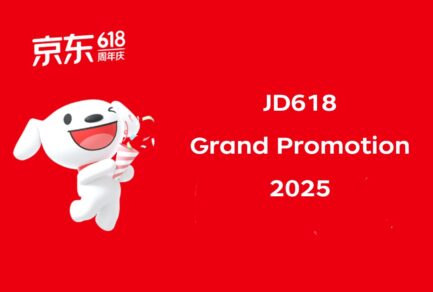May 26, 2021|
Responsible Drinking at JD: You Have the Choice to Opt-Out of Alcohol Marketing
by Ella Kidron
The International Alliance for Responsible Drinking (IARD) released new standards concerning e-commerce deliveries of alcohol on May 25. JD.com, the first member to join IARD from China, was featured in IARD’s Global Standards for Online Sales and Delivery report for giving consumers the option to opt out of alcohol-related marketing.
As mentioned in the report, JD provides consumers with the flexibility and functionality to customize and control the alcohol marketing messages that they see on its e-commerce platform. Consumers who do not wish to see alcohol marketing can simply click an “X” that is displayed next to the products. JD’s recommendation engine uses artificial intelligence (AI) to determine which products will be promoted to customers and therefore can quickly learn consumers’ preferences. After a short period of time, JD.com’s platform will stop displaying alcohol-related product marketing to consumers who opt out of it.
According to IARD’s report, e-commerce alcohol value growth between 2015 and 2020 was 120% and total sales in 2020 were $36.8 billion. Furthermore, IWSR Drinks Market Analysis finds that across 20 key markets, the value of e-commerce alcohol sales is forecast to grow by 74% between 2020 and 2024.
IARD is a non-profit organization dedicated to addressing harmful drinking worldwide and promoting understanding of responsible drinking, among those who choose to drink. IARD is supported by its member companies from all sectors in their common purpose of being part of the solution to reducing the harmful use of alcohol. IARD’s member companies are commercially active in more than 100 countries and contribute to sustainable growth and embrace a whole-of-society approach to improving health.
IARD’s CEO chair, Albert Baladi (who is also president and CEO of Beam Suntory), said in the report: “Within the alcohol e-commerce sector, there are already responsibility practices and different business models in place – but now with the growth in online sales and alcohol deliveries rapidly accelerating, it is urgent that we build and leverage robust responsibility standards across the world and throughout the entire supply chain.”
“E-commerce also presents many opportunities to further combat the harmful use of alcohol – it is a direct channel for us to provide consumers with information on harmful drinking, and for them to engage with our brands in a responsible way,” he added.






 JD among the First to Receive Autonomous Delivery Road Test License in China
JD among the First to Receive Autonomous Delivery Road Test License in China



